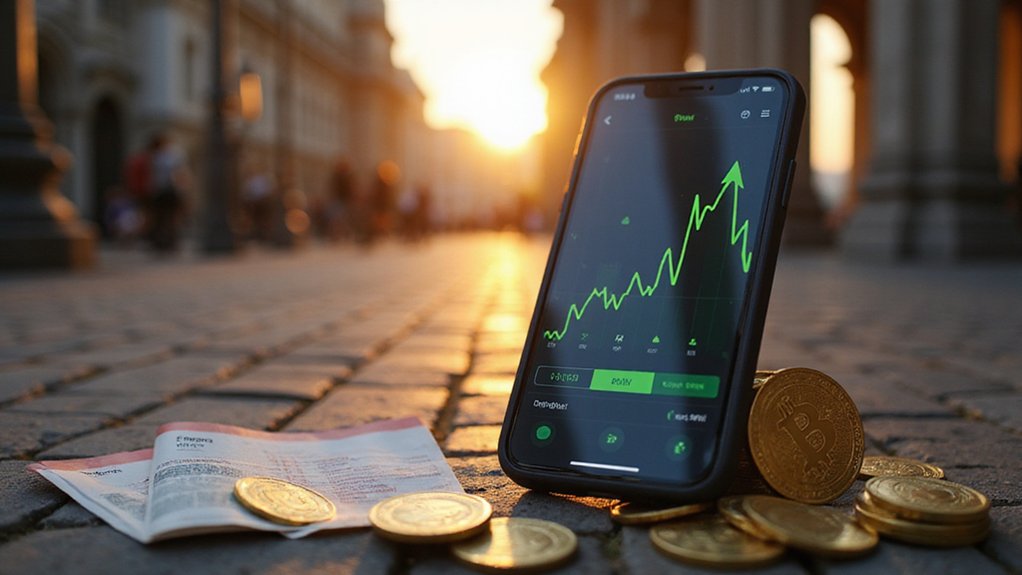Robinhood is orchestrating what amounts to a financial sleight of hand, transforming traditional equities into blockchain tokens while simultaneously conquering European markets through regulatory arbitrage that would make Renaissance-era merchant bankers envious. The platform has expanded its tokenized stock offerings from a modest 200 securities to over 2,000 by 2025, fundamentally creating digital doppelgangers of U.S. equities that European retail investors can trade around the clock—because apparently, traditional market hours are so last century.
Traditional market hours are so last century when you can trade digital doppelgangers of U.S. equities around the clock.
This tokenization occurs on Arbitrum, a Layer 2 Ethereum solution, though Robinhood plans to migrate everything to its proprietary blockchain (naturally, because why settle for renting when you can own the entire digital highway?). The tokenized assets maintain traditional equity benefits—dividend payments process seamlessly within the app—while adding programmable features that enable fractional trading and staking. It’s traditional finance wrapped in blockchain clothing, appealing to investors who want their Apple shares with a side of cryptographic validation.
The European expansion hinges on Robinhood’s acquisition of Bitstamp, which instantly provided regulatory licenses across 31 EU countries under MiCA compliance. This strategic move bypasses the glacial pace of U.S. regulatory approval processes, allowing Robinhood to offer perpetual futures and innovative crypto derivatives to European customers with remarkable speed. The company has simultaneously reinstated cryptocurrencies like Solana and XRP on its platform following the improved regulatory environment in Washington, D.C.
Meanwhile, the platform has introduced micro crypto futures for XRP, Solana, and Bitcoin, dramatically lowering barriers to derivatives trading. These micro contracts require considerably less capital—XRP’s micro contract covers 2,500 tokens versus the standard 50,000—with tick sizes reduced to $1.25 for accessibility. The result? A 36% month-over-month surge in crypto futures volumes, reaching $11.7 billion in May 2025.
Robinhood’s zero-commission structure across these offerings creates an ecosystem where European retail investors can access U.S. markets through blockchain tokens while participating in crypto derivatives previously reserved for institutional players. The platform’s evolution from a crypto-only app to a comprehensive investment platform demonstrates its commitment to capturing the entire spectrum of digital asset trading. This approach positions the company alongside established DeFi platforms that have revolutionized peer-to-peer transactions by eliminating traditional financial intermediaries. The company envisions crypto becoming the backbone of global finance, positioning itself as the primary architect of this transformation through regulatory compliance, technological innovation, and strategic market positioning that would impress any corporate chess master.









